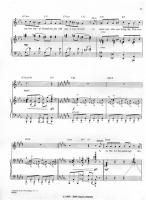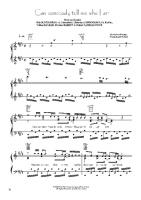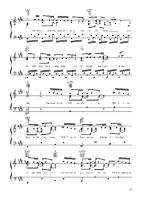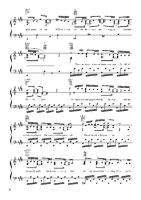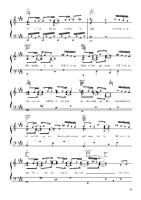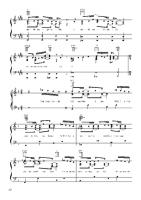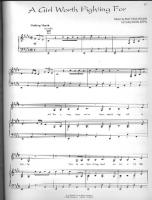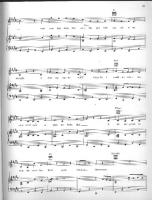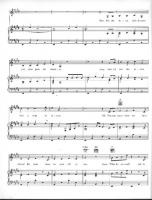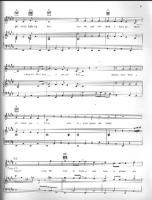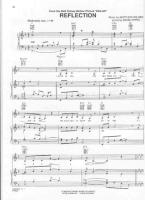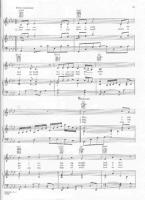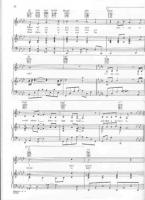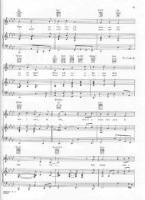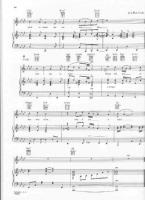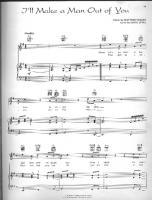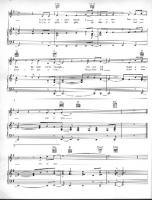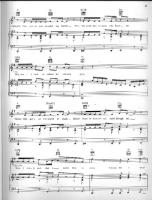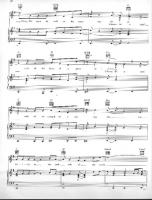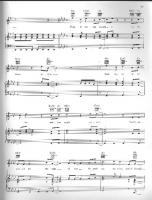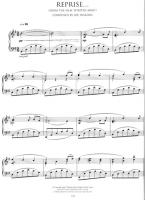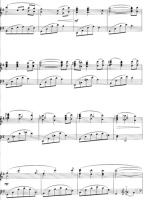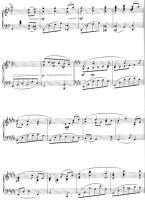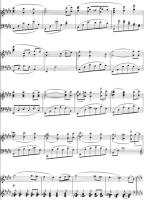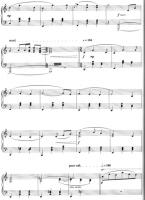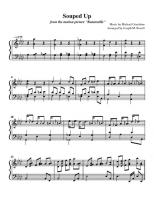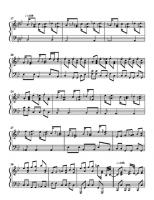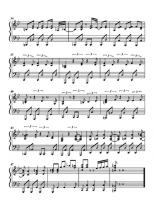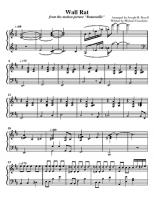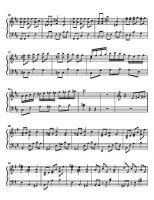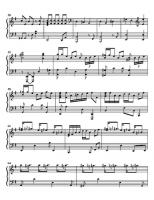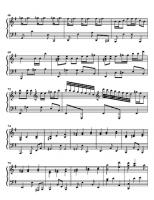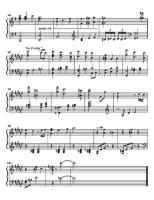Latest Sheets
Anastasia
 Anastasia is an Academy Award nominated American animated feature musical film produced and directed by Don Bluth and Gary Goldman at Fox Animation Studios, and was released on November 14, 1997 by 20th Century Fox.
Anastasia is an Academy Award nominated American animated feature musical film produced and directed by Don Bluth and Gary Goldman at Fox Animation Studios, and was released on November 14, 1997 by 20th Century Fox.The idea for the film originates from Fox's 1956 live-action film version of the same name. Executives at Fox gave Bluth and Goldman the choice of creating an animated adaptation of either the 1956 film or the original play by Marcelle Maurette.
Cinderella
 Cinderella is a 1950 animated feature produced by Walt Disney, and released to theaters on February 15, 1950 by RKO Radio Pictures. The twelfth animated feature in the Disney animated features canon, the film was directed by Clyde Geronimi, Hamilton Luske and Wilfred Jackson, based the fairy tale "Cinderella" by Charles Perrault. Songs were written by Mack David, Jerry Livingston, and Al Hoffman. Songs in the film include "A Dream Is a Wish Your Heart Makes", "Bibbidi-Bobbidi-Boo", "So This Is Love", "Sing Sweet Nightingale", "The Work Song", and "Cinderella."
Cinderella is a 1950 animated feature produced by Walt Disney, and released to theaters on February 15, 1950 by RKO Radio Pictures. The twelfth animated feature in the Disney animated features canon, the film was directed by Clyde Geronimi, Hamilton Luske and Wilfred Jackson, based the fairy tale "Cinderella" by Charles Perrault. Songs were written by Mack David, Jerry Livingston, and Al Hoffman. Songs in the film include "A Dream Is a Wish Your Heart Makes", "Bibbidi-Bobbidi-Boo", "So This Is Love", "Sing Sweet Nightingale", "The Work Song", and "Cinderella."The film received three Academy Award nominations for Best Sound, Original Music Score and Best Song for "Bibbidi-Bobbidi-Boo".
Corpse Bride
 Tim Burton's Corpse Bride (often abbreviated as Corpse Bride) is a 2005 stop-motion-animation film based loosely on a 19th century Russian-Jewish folktale version of an older Jewish story and set in a fictional Victorian era village. It was directed by Tim Burton and Mike Johnson, and filmed at 3 Mills Studios in London. Johnny Depp led an all-star cast as the voice of Victor and Helena Bonham Carter (for whom the project was specially created) as the voice of the title character. This is the first animated film in which Johnny Depp has been a voice actor. The film's initial release was two weeks prior to that of Wallace & Gromit: The Curse of the Were-Rabbit, marking the first time that a stop-motion animated film and a claymation animated one were in simultaneous wide theatrical release. Interestingly, both films feature the voice of Helena Bonham Carter in a lead role and a character named Victor. Coincidentally, Burton's first stop-motion film, The Nightmare Before Christmas was released the same year as Nick Park's The Wrong Trousers.
Tim Burton's Corpse Bride (often abbreviated as Corpse Bride) is a 2005 stop-motion-animation film based loosely on a 19th century Russian-Jewish folktale version of an older Jewish story and set in a fictional Victorian era village. It was directed by Tim Burton and Mike Johnson, and filmed at 3 Mills Studios in London. Johnny Depp led an all-star cast as the voice of Victor and Helena Bonham Carter (for whom the project was specially created) as the voice of the title character. This is the first animated film in which Johnny Depp has been a voice actor. The film's initial release was two weeks prior to that of Wallace & Gromit: The Curse of the Were-Rabbit, marking the first time that a stop-motion animated film and a claymation animated one were in simultaneous wide theatrical release. Interestingly, both films feature the voice of Helena Bonham Carter in a lead role and a character named Victor. Coincidentally, Burton's first stop-motion film, The Nightmare Before Christmas was released the same year as Nick Park's The Wrong Trousers.The film was nominated in the 78th Academy Awards for Best Animated Feature. It lost to Wallace & Gromit: The Curse of the Were-Rabbit.
The film is dedicated to the memory of Joe Ranft.
The movie exhibits Burton's trademark style and recurring themes (the complex interaction between light and darkness, and of being caught between two irreconcilable worlds). Life is portrayed as boring and dully gray tinted while death is more fun, as evidenced by the brighter colors and jaunty music. The movie can be particularly compared to The Nightmare Before Christmas, Burton's previous stop-motion feature project (directed by Henry Selick and based on a Tim Burton poem, which Corpse Bride director Mike Johnson worked on as an animator) and Beetlejuice, especially in the scenes depicting the underworld and its deceased denizens. The studio intentionally emphasized the links, as some commercials for Corpse Bride were accompanied by songs from The Nightmare Before Christmas (specifically, "What's This"); also, in an issue of Disney Adventures, Emily (the title character) was compared to The Nightmare Before Christmas's Sally, despite the stark contrasts in personality between the outspoken, free-spirited Emily and the quiet, timid Sally. The Corpse Bride is also considered to be the spiritual successor of The Nightmare Before Christmas.
Most of the characters in the film bear a strong resemblance to the original cast of the British period drama Upstairs, Downstairs. In the "Special Features" section of the DVD, Tim Burton states that the films' setting pays tribute to the series, with the Land of the Living being the "upstairs", and the Land of the Dead being the "downstairs".
Aladdin
 Aladdin is a 1992 animated feature produced by Walt Disney Feature Animation, and released by Walt Disney Pictures on November 25, 1992. The thirty-first animated feature in the Disney animated features canon, the film is based on the Arab folktale of Aladdin and the magic lamp from One Thousand and One Nights. Several characters and plot elements are also based on the 1940 version of The Thief of Bagdad.
Aladdin is a 1992 animated feature produced by Walt Disney Feature Animation, and released by Walt Disney Pictures on November 25, 1992. The thirty-first animated feature in the Disney animated features canon, the film is based on the Arab folktale of Aladdin and the magic lamp from One Thousand and One Nights. Several characters and plot elements are also based on the 1940 version of The Thief of Bagdad.The film was directed by John Musker and Ron Clements, both of whom had just finished writing and directing The Little Mermaid (1989). The musical score was written by Alan Menken, with song lyrics written by Howard Ashman and Tim Rice. Aladdin features the voices of Scott Weinger, Jonathan Freeman, Linda Larkin, Frank Welker, Gilbert Gottfried, Douglas Seale, and, as the Genie of the lamp, Robin Williams. Although this was not the first time in which a major actor such as Williams provided voice-over work for an animated film, it was the first major American animated feature film in which particular attention was paid to a celebrity voice cast member, such as a major movie star, in the film as part of its promotion. This has led to a subsequent increased attention to the casts of later productions, as a major element of animated film marketing.
Aladdin was followed by two direct-to-video sequels: The Return of Jafar (1994) and Aladdin and the King of Thieves (1996), and an animated television series, Aladdin, set between the two sequels.
The Little Mermaid
 The Little Mermaid is a 1989 animated feature produced by Walt Disney Feature Animation with pencil test began on September 23, 1988 and first released on November 17, 1989 by Walt Disney Pictures with the first Wallace and Gromit short film, A Grand Day Out. The twenty-eighth animated feature in the Disney animated features canon, the film is based on the Hans Christian Andersen fairy tale "The Little Mermaid." During its initial release, it grossed over $84 million in the United States and an additional $99 million internationally.
The Little Mermaid is a 1989 animated feature produced by Walt Disney Feature Animation with pencil test began on September 23, 1988 and first released on November 17, 1989 by Walt Disney Pictures with the first Wallace and Gromit short film, A Grand Day Out. The twenty-eighth animated feature in the Disney animated features canon, the film is based on the Hans Christian Andersen fairy tale "The Little Mermaid." During its initial release, it grossed over $84 million in the United States and an additional $99 million internationally.The film is given credit for breathing life back into the animated feature film genre after a string of critical and commercial failures that had dated to the early 1980s. It also marked the start of the era known as Disney Renaissance.
A stage adaptation of the film with a book by Doug Wright and additional songs by Alan Menken and new lyricist Glenn Slater opened in Denver in July 2007 and began performances on Broadway.
The Little Mermaid: An Original Walt Disney Records Soundtrack is the soundtrack to Disney's 1989 animated feature The Little Mermaid. It contains the songs from the film written by Alan Menken and Howard Ashman, as well as the film's score composed by Alan Menken. The album received the Academy Award for Best Original Score and the Golden Globe Award for Best Original Score.
In October 2006, a new two-disc special edition version of the soundtrack was released to correspond with the two-disc Platinum Edition DVD release of The Little Mermaid. The first disc remains identical to the original release, yet with remastered audio, while the newly added second disc is composed of various newly recorded version of the film's songs by different artists, such as Ashley Tisdale, Raven-Symoné, The Jonas Brothers, and Jessica Simpson. It also includeds two videos, as well as new cover art.
Charlie Brown
 Charles "Charlie" Brown is the main character in the comic strip Peanuts by Charles M. Schulz.
Charles "Charlie" Brown is the main character in the comic strip Peanuts by Charles M. Schulz.
Dinosaur
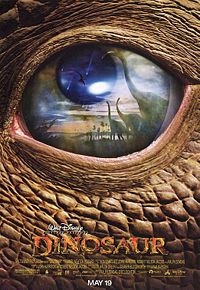 Dinosaur is a feature film produced by Walt Disney Pictures, and released to movie theatres in 2000. It combines the use of live-action backgrounds with computer animation of prehistoric creatures, notably the titular dinosaurs, done by a special CGI unit that predated the creation of Disney's Secret Lab computer-generated imagery department. The Disney's Secret Lab department of the Disney company is now closed.
Dinosaur is a feature film produced by Walt Disney Pictures, and released to movie theatres in 2000. It combines the use of live-action backgrounds with computer animation of prehistoric creatures, notably the titular dinosaurs, done by a special CGI unit that predated the creation of Disney's Secret Lab computer-generated imagery department. The Disney's Secret Lab department of the Disney company is now closed.The film was the most expensive movie of 2000, costing $130 million United States dollars, although unofficial estimates put it around $200 million. This film was rated PG by the MPAA for intense images.
Pocahontas
 Pocahontas is the thirty-third animated feature in the Disney animated features canon. It was produced by Walt Disney Feature Animation in April 15, 1994 and was originally released to selected theaters on June 16, 1995 by Buena Vista Pictures. The film is the first Disney film to be based on a real historic character. The film is based on the known historical story of Pocahontas but also on the folklore and legend that surround it. In particular, it presents an emotionally charged and highly dramatic account of the meeting between Pocahontas and John Smith. Pocahontas is one of the very few Disney films to feature an interracial romance (though not to the point of marriage),and is part of the Disney Renaissance that began in 1989 with The Little Mermaid.
Pocahontas is the thirty-third animated feature in the Disney animated features canon. It was produced by Walt Disney Feature Animation in April 15, 1994 and was originally released to selected theaters on June 16, 1995 by Buena Vista Pictures. The film is the first Disney film to be based on a real historic character. The film is based on the known historical story of Pocahontas but also on the folklore and legend that surround it. In particular, it presents an emotionally charged and highly dramatic account of the meeting between Pocahontas and John Smith. Pocahontas is one of the very few Disney films to feature an interracial romance (though not to the point of marriage),and is part of the Disney Renaissance that began in 1989 with The Little Mermaid.Pocahontas: An Original Walt Disney Records Soundtrack is the soundtrack to Disney's 1995, thirty-third animated feature Pocahontas. It contains songs from the film written by Alan Menken and Stephen Schwartz, conducted by David Friedman, and performed by Judy Kuhn, Mel Gibson, Linda Hunt, Jim Cummings and David Ogden Stiers among others, and singles by Jon Secada and Shanice, and Vanessa L. Williams, along with the film's score composed by Alan Menken. It was released on May 30, 1995 on CD and audio cassette.
The film's sountrack is probably best known for the track that serves as the film's anthem, "Colors of the Wind", which went on to win an Academy Award, a Golden Globe Award, and a Grammy Award. As a single, "Colors of the Wind" went on to reach #4 on the U.S. pop charts in 1995, and was one of Williams' biggest hits.
The soundtrack also won The Academy Award for Best Original Score, sold 2.3 million copies in the remaining two months of 1995 alone, and went on to reach #1 on the Billboard 200.
Beauty and the Beast
 Beauty and the Beast is a 1991 animated American family film. It is the thirtieth animated feature produced by Walt Disney Feature Animation. The film received its premiere at the El Capitan Theatre in Hollywood on November 13, 1991. This film, one of the best known of the Disney studio's films, is based on the well-known fairy tale Beauty and the Beast, about a beautiful woman kept in a castle by a horrific monster. It is the first and only full-length animated feature film to ever be nominated for an Academy Award for Best Picture (it lost to The Silence of the Lambs). Heightening the level of performance in the era known as the Disney Renaissance (1989-1999, beginning with The Little Mermaid and ending with Tarzan ), many animated films following its release have been influenced by its blending of traditional animation and computer generated imagery.
Beauty and the Beast is a 1991 animated American family film. It is the thirtieth animated feature produced by Walt Disney Feature Animation. The film received its premiere at the El Capitan Theatre in Hollywood on November 13, 1991. This film, one of the best known of the Disney studio's films, is based on the well-known fairy tale Beauty and the Beast, about a beautiful woman kept in a castle by a horrific monster. It is the first and only full-length animated feature film to ever be nominated for an Academy Award for Best Picture (it lost to The Silence of the Lambs). Heightening the level of performance in the era known as the Disney Renaissance (1989-1999, beginning with The Little Mermaid and ending with Tarzan ), many animated films following its release have been influenced by its blending of traditional animation and computer generated imagery.Beauty and the Beast ranked 7th on the American Film Institutes's list of best animated films, #22 on the Institutes's list of best musicals and #34 on its list of the best romantic American movies. On the list of the greatest songs from American movies, Beauty and the Beast ranked #62. The film was adapted into a Broadway musical of the same name, which ran from 1994 to 2007.
In 2002, Beauty and the Beast was added to the United States National Film Registry as being deemed "culturally, historically, or aesthetically significant." In January of the same year, the film was reissued in IMAX format in a special edition edit including a new musical sequence. A two-disc Platinum Edition DVD release followed in October.
Mulan
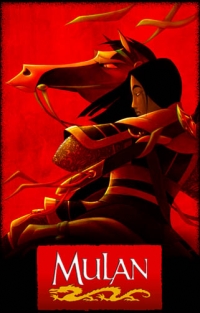 Mulan is a 1998 animated feature film produced by Walt Disney Feature Animation, and released by Walt Disney Pictures on June 19, 1998. The thirty-sixth animated feature in the Disney animated features canon, the film is based on the Chinese legend of Hua Mulan, and was the first of three produced primarily at the animation studio at Disney-MGM Studios in Orlando, Florida. It was directed by Tony Bancroft and Barry Cook, with the story by Robert D. San Souci and Rita Hsiao, among others. The film was part of the Disney Renaissance that began in 1989.
Mulan is a 1998 animated feature film produced by Walt Disney Feature Animation, and released by Walt Disney Pictures on June 19, 1998. The thirty-sixth animated feature in the Disney animated features canon, the film is based on the Chinese legend of Hua Mulan, and was the first of three produced primarily at the animation studio at Disney-MGM Studios in Orlando, Florida. It was directed by Tony Bancroft and Barry Cook, with the story by Robert D. San Souci and Rita Hsiao, among others. The film was part of the Disney Renaissance that began in 1989.
Spirited Away
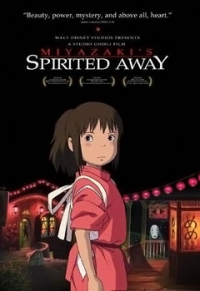 Spirited Away - literally Sen and Chihiro's Spiriting Away is a 2001 film by the Japanese anime studio Studio Ghibli, written and directed by famed animator Hayao Miyazaki.
Spirited Away - literally Sen and Chihiro's Spiriting Away is a 2001 film by the Japanese anime studio Studio Ghibli, written and directed by famed animator Hayao Miyazaki.The film received many awards, including the second Oscar ever awarded for Best Animated Feature, the first anime film to win an Academy Award, and the only winner of that award to win among five nominees (in every other year there were three nominees). The film also won the Golden Bear at the 2002 Berlin International Film Festival (tied with Bloody Sunday).
The closing song, Always With Me was written and performed by Yumi Kimura, a composer and lyre-player from Osaka. The lyrics were written by Kimura's friend Wakako Kaku. The song was intended to be used for a different Miyazaki film which was never released, Rin the Chimney Painter. In the special features of the dvd, Hayao Miyazaki explains how the song in fact inspired him to create "Spirited Away".
The other 20 tracks on the original soundtrack were composed by Joe Hisaishi. His The River of That Day received the 56th Mainichi Film Competition Award for Best Music, the Tokyo International Anime Fair 2001 Best Music Award in the Theater Movie category, and the 16th Japan Gold Disk Award for Animation Album of the Year. Later, Hisaishi added lyrics to "Ano hi no Kawa" and named the new version The Name of Life which was performed by Hirahara Ayaka.
Beside the Original Soundtrack, there is also an Image Album, which contains 10 tracks.
The Lion King
 The Lion King is a 1994 American animated feature film produced by Walt Disney Feature Animation, released in theaters on June 15, 1994 by Walt Disney Pictures. It is the 32nd film in the Disney animated feature canon. The film was the highest grossing animated film of all time until the release of Finding Nemo (a Disney/Pixar computer-animated film). The Lion King still holds the record as the highest grossing traditionally animated film in history. This film also belongs to an era known as the Disney Renaissance.
The Lion King is a 1994 American animated feature film produced by Walt Disney Feature Animation, released in theaters on June 15, 1994 by Walt Disney Pictures. It is the 32nd film in the Disney animated feature canon. The film was the highest grossing animated film of all time until the release of Finding Nemo (a Disney/Pixar computer-animated film). The Lion King still holds the record as the highest grossing traditionally animated film in history. This film also belongs to an era known as the Disney Renaissance.The story, which was strongly influenced by the Shakespearean play Hamlet and Disney's 1942 classic Bambi, takes place in a kingdom of anthropomorphic animals in Africa. A musical film, The Lion King garnered two Academy Awards for its achievement in music. Songs were written by composer Elton John and lyricist Tim Rice, with an original score by Hans Zimmer. Disney later produced two related movies: a sequel, The Lion King II: Simba's Pride; and a part prequel-part parallel, The Lion King 1½.
The Lion King: Original Motion Picture Soundtrack is the original motion picture soundtrack for Walt Disney's The Lion King. The songs were written by Elton John and Tim Rice. The original score was composed and arranged by Hans Zimmer. The soundtrack was recorded in three different countries, namely: USA, UK and South Africa.
Ratatouille
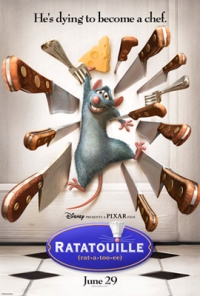 Ratatouille is a 2007 computer-animated family film produced by Pixar and distributed by Walt Disney Pictures. The film was the eighth movie produced by Pixar, and was directed by Brad Bird, who took over from Jan Pinkava in 2005. It was released on June 29, 2007 in the United States, to both critical acclaim and box office success. The title refers to a French dish which is served in the film, and is also a play on words on the species of the main character.
Ratatouille is a 2007 computer-animated family film produced by Pixar and distributed by Walt Disney Pictures. The film was the eighth movie produced by Pixar, and was directed by Brad Bird, who took over from Jan Pinkava in 2005. It was released on June 29, 2007 in the United States, to both critical acclaim and box office success. The title refers to a French dish which is served in the film, and is also a play on words on the species of the main character.Ratatouille is the original soundtrack album, on the Disney label, of the 2007 Academy Award-winning animated feature Ratatouille. The album is composed by Michael Giacchino. "Le Festin", sung by French musician and vocalist Camille, was nominated for a World Soundtrack Award in 2007 and is the film's only song with vocals. On the CD edition of the soundtrack, the song appears as the album's first track with the remaining 23 tracks orchestral in nature.
The entire score was nominated for "Best Original Score" at the 80th Academy Awards.
Shrek
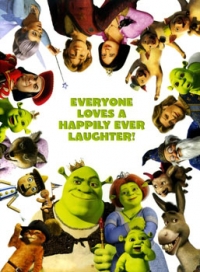 The Shrek film series from DreamWorks Animation, based on William Steig's picture book, Shrek!, consists of eight projects, three of which have been released as feature films: Shrek (2001), Shrek 2 (2004), and Shrek the Third (2007). Shrek Goes Fourth is currently in pre-production, aiming for release in 2010. Shrek 5 is a sequel proposed for release in 2013. A spin-off project, the Christmas television special Shrek The Halls, premiered on ABC in the USA and worldwide in 2007 to successful ratings. One film is in the development phase, Puss in Boots: The Story of an Ogre Killer, expected to be released in 2011.
The Shrek film series from DreamWorks Animation, based on William Steig's picture book, Shrek!, consists of eight projects, three of which have been released as feature films: Shrek (2001), Shrek 2 (2004), and Shrek the Third (2007). Shrek Goes Fourth is currently in pre-production, aiming for release in 2010. Shrek 5 is a sequel proposed for release in 2013. A spin-off project, the Christmas television special Shrek The Halls, premiered on ABC in the USA and worldwide in 2007 to successful ratings. One film is in the development phase, Puss in Boots: The Story of an Ogre Killer, expected to be released in 2011.
Search for Free Sheet Music
You can make a search through the entire collection of sheets.
You can make a search through the entire collection of sheets.
Hi, fellow musicians!
There is no registration required to download the sheets but you can subscribe to our mailing list to get notified of new sheets.
There is no registration required to download the sheets but you can subscribe to our mailing list to get notified of new sheets.
Latest Artists
Andrew Lloyd Webber
× 3
Emilie Autumn × 1
Abbie Betinis × 1
Daniel Johnston × 1
Domenico Scarlatti × 1
Johann Friedrich Fasch × 1
Andy Thornton × 1
Younha × 1
Niels Nørgaard × 1
Hugues Aufrey × 1
Kirby Shaw × 1
Keith Jarrett × 2
Bill Evans × 4
Cecile Chaminade × 1
Albinoni × 2
Theodore Shapiro × 1
Carlos Guastavino × 1
Five for Fighting × 1
David Wise × 1
Leopoldo Federico × 1
Kiss Me, Kate × 1
Atie Bernet × 1
Genesis × 1
Frank Wildhorn × 1
Berklee College Of Music × 2
Hendrik Andriessen × 1
Clarence Henry × 1
fats waller × 1
The Sims × 1
Ron Levy × 1
Marc-André Hamelin × 1
Lennie Tristano × 1
Quincy Jones × 1
Carlos Hernani Macchi × 1
Jack Johnson × 1
Roy Hargrove × 1
Porco Rosso × 1
Prokofiev × 1
Nhac Viet × 1
Crystal Warriors × 1
Thien Ly × 1
Ciprian Porumbescu × 1
Roger Cook × 1
Yiruma × 2
Mohammed Abdel Wahab × 1
Crescendo × 1
Michel Polnareff × 1
Carl Nielsen × 1
Toru Takemitsu × 1
Tom Jobim × 1
Emilie Autumn × 1
Abbie Betinis × 1
Daniel Johnston × 1
Domenico Scarlatti × 1
Johann Friedrich Fasch × 1
Andy Thornton × 1
Younha × 1
Niels Nørgaard × 1
Hugues Aufrey × 1
Kirby Shaw × 1
Keith Jarrett × 2
Bill Evans × 4
Cecile Chaminade × 1
Albinoni × 2
Theodore Shapiro × 1
Carlos Guastavino × 1
Five for Fighting × 1
David Wise × 1
Leopoldo Federico × 1
Kiss Me, Kate × 1
Atie Bernet × 1
Genesis × 1
Frank Wildhorn × 1
Berklee College Of Music × 2
Hendrik Andriessen × 1
Clarence Henry × 1
fats waller × 1
The Sims × 1
Ron Levy × 1
Marc-André Hamelin × 1
Lennie Tristano × 1
Quincy Jones × 1
Carlos Hernani Macchi × 1
Jack Johnson × 1
Roy Hargrove × 1
Porco Rosso × 1
Prokofiev × 1
Nhac Viet × 1
Crystal Warriors × 1
Thien Ly × 1
Ciprian Porumbescu × 1
Roger Cook × 1
Yiruma × 2
Mohammed Abdel Wahab × 1
Crescendo × 1
Michel Polnareff × 1
Carl Nielsen × 1
Toru Takemitsu × 1
Tom Jobim × 1





